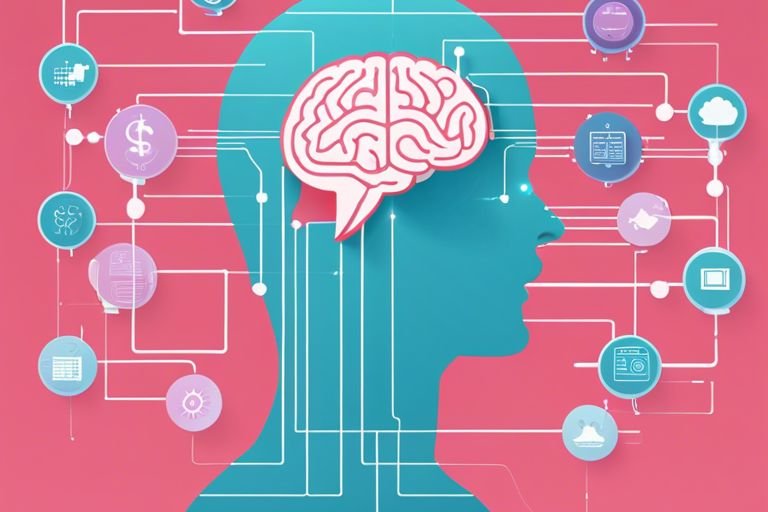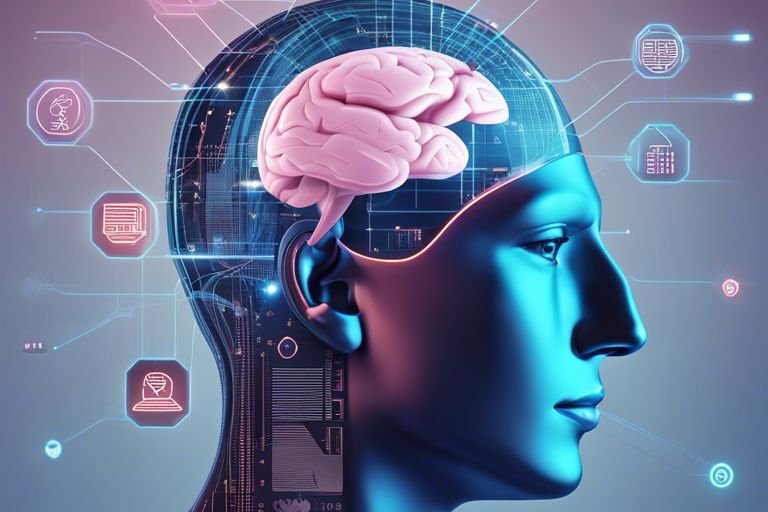Can AI help businesses to make better decisions and predictions?

Envision a world where your business decisions are backed by accurate and data-driven predictions that lead to revenue growth and improved efficiency. With the advancements in Artificial Intelligence (AI) technology, this vision is now a reality. AI has the potential to transform the way businesses operate by enabling you to make more informed decisions and predict future trends with greater accuracy. By leveraging AI-powered algorithms and machine learning models, you can gain valuable insights into consumer behavior, market trends, and operational patterns, ultimately leading to smarter and more profitable business decisions. In this blog post, we will explore how AI can help your business to make better decisions and predictions, and the potential implications for your competitive advantage in the marketplace.
Key Takeaways:
- Improved decision-making: AI can analyze large volumes of data to provide businesses with valuable insights, enabling more informed and evidence-based decision-making.
- Enhanced predictive capabilities: By utilizing AI algorithms, businesses can make accurate predictions about future trends, customer behavior, and market fluctuations, helping them to stay ahead of the competition.
- Efficiency and cost savings: Implementing AI for decision-making and predictions can streamline processes, reduce human error, and ultimately lead to cost savings and increased operational efficiency.
Understanding AI Capabilities
Clearly, in order to understand how AI can help your business make better decisions and predictions, it’s important to have a grasp of its capabilities. AI encompasses a wide range of technologies that enable computers to perform tasks that typically require human intelligence. These technologies include machine learning, natural language processing, data analysis, and predictive analytics.
Machine Learning and Data Analysis
Machine learning is a key capability of AI that allows computer systems to learn from data and improve their performance over time without being explicitly programmed. By leveraging machine learning algorithms, your business can analyze large volumes of data to identify patterns, trends, and insights that would be nearly impossible to uncover with traditional data analysis methods. This can lead to more accurate predictions and better decision-making for your business.
Predictive Analytics and Decision Making
Another powerful capability of AI is predictive analytics, which involves using data, statistical algorithms, and machine learning techniques to identify the likelihood of future outcomes based on historical data. By employing predictive analytics, your business can make more informed decisions, anticipate customer needs, optimize operational processes, and mitigate risks. This can ultimately lead to improved business performance and a competitive edge in your industry.
AI-Powered Business Decision Making
Some of the most critical aspects of leveraging AI for business decision-making are enhancing strategic planning and making real-time decisions to improve operational efficiency. With the advancements in AI technology, businesses can now harness the power of algorithms and machine learning to make more informed, data-driven decisions.
Enhancing Strategic Planning
By harnessing AI, you can enhance your strategic planning process by gaining access to valuable insights and predictive analytics. AI can help you analyze historical data and market trends to identify potential opportunities and threats. By integrating AI into your strategic planning, you can make more accurate forecasts and predictions, helping you allocate resources more effectively and adapt to market changes with greater agility.
Real-Time Decisions and Operational Efficiency
AI enables you to make real-time decisions by automating data analysis and providing instant insights. This helps you streamline your operational processes and improve efficiency. With AI, you can identify patterns and anomalies in your data, allowing you to take immediate action to address potential issues or capitalize on emerging opportunities. By leveraging AI for real-time decision-making, you can enhance the overall agility and responsiveness of your business.
Case Studies and Real-World Applications
After implementing AI technology, many businesses have seen significant improvements in their decision-making processes. Here are some real-world examples of how AI has helped businesses make better decisions and predictions:
- Healthcare: AI has been used to analyze patient data and identify trends that can help healthcare providers make better treatment decisions. For example, a study by Stanford University found that AI can predict which patients are at risk of developing sepsis with an accuracy of 90%.
- Finance: In the financial sector, AI has been used to detect fraudulent transactions with greater accuracy than traditional methods. According to a report by Juniper Research, AI is expected to save financial institutions $22 billion by 2023 through the reduction of fraud.
- Retail: Retailers have used AI to analyze customer data and make personalized product recommendations. For instance, Amazon’s recommendation system uses AI to suggest products to customers, leading to a 29% increase in sales.
AI Success Stories in Various Industries
AI has revolutionized decision-making processes in various industries, leading to improved efficiency and accuracy. In healthcare, AI has enabled personalized treatment plans and early disease detection. In finance, AI has aided in fraud detection and risk management. The retail sector has seen increased sales and customer satisfaction through AI-powered recommendation systems. Across all sectors, AI has proven to be a valuable tool for making better decisions and predictions.
Learning from Failures: When AI Falls Short
Although AI has shown promising results in enhancing decision-making, there have been instances where it has fallen short. For example, AI biases have led to discriminatory outcomes in hiring processes and lending decisions. Additionally, AI models have made inaccurate predictions in certain scenarios, highlighting the importance of continual monitoring and human oversight in AI applications. It’s crucial to recognize these failures and work towards improving AI systems for more reliable decision-making.

Ethical Considerations and Future Implications
Despite the numerous benefits that AI can bring to businesses, it is important to consider the ethical implications of its use. As AI continues to evolve and become more advanced, the ethical considerations surrounding its use become more complex. Businesses need to be mindful of the potential ethical risks associated with AI, including issues related to privacy, bias, and the impact on the workforce. It is crucial that businesses consider these ethical considerations and take steps to mitigate any potential negative impacts.
Navigating Privacy and Data Security Concerns
With the increasing use of AI in businesses, privacy and data security concerns have become more prominent. As businesses collect and analyze large amounts of data to train AI algorithms, there is a risk of exposing sensitive information and infringing on individuals’ privacy. It is essential to implement robust data protection measures and ensure that data is handled in a secure and ethical manner. By prioritizing privacy and data security, you can build trust with your customers and stakeholders and mitigate the risk of data breaches and regulatory non-compliance.
The Future of AI in Business: Opportunities and Challenges
The future of AI in business presents a myriad of opportunities as well as challenges. AI has the potential to transform industries, improve decision-making processes, and enhance productivity. However, it also brings about challenges such as ethical and legal implications, job displacement, and the need for upskilling the workforce to adapt to AI-driven changes. By embracing AI and proactively addressing its challenges, you can position your business for success in the rapidly evolving digital landscape. Harnessing the power of AI while being mindful of its potential impact on your business and employees can lead to significant competitive advantages and innovation.
Can AI help businesses to make better decisions and predictions?
Now, you can see that AI has the potential to greatly impact the way businesses make decisions and predictions. With its ability to analyze vast amounts of data and identify patterns that humans might overlook, AI can provide valuable insights that can lead to more informed and strategic decision-making. By leveraging AI technology, businesses can gain a competitive edge in the market, improve forecasting accuracy, and ultimately enhance their overall performance. As the technology continues to advance, it is crucial for businesses to embrace AI to stay ahead of the curve and harness its potential for driving success and innovation.



